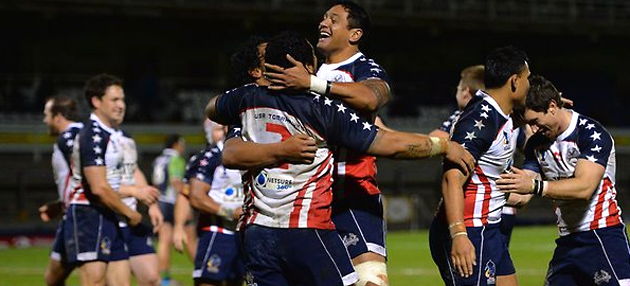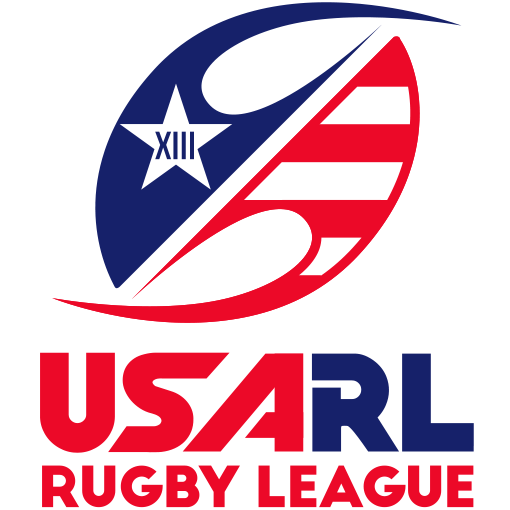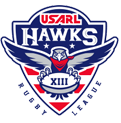US Tomahawks surprise packets of the rugby league World Cup
IT would be misleading to suggest that this is exactly trending, but at the AJ Bell Stadium in Salford, England, this week small but significant pockets of people were wrapped proudly in Stars And Stripes. Some of them wore American bobble hats. And when they belted out “USA! USA!” they sounded properly transatlantic.

Ask where they were from, though, they smiled and let their accents hang loose. Warrington, Bradford, Dewsbury. United in the American flag, what they shared was a love of the same unlikely story, an adoption of the same unlikely team: the USA Tomahawks, the team from nowhere.
Never having qualified for a Rugby League World Cup before, they have already reached the quarter-finals, knocked out Wales and, were it not for a comeback by Scotland yesterday, they would be three wins from three. If you like a good yarn about triumph against the odds, the Tomahawks are your team.
Only three of their players are full-time professionals and most have taken annual leave to be here, doing their regular work on their laptops in between training and playing. Many have Aussie accents and they have a star from Hawaii who is a fire-dancer and gives demonstrations of how Polynesians climb trees to collect coconuts. As Terry Matterson, the coach of this rag-tag team, put it, what they have achieved "has been totally unexpected; I simply can't believe it".
The history itself is incredible. Rugby league did not really even exist in the US until the 1980s. There was a brief flutter in 1953, inspired by a former US serviceman who had fought in the Pacific in World War II and had a brief sojourn in Sydney, where he witnessed a game at the SCG and liked what he saw. Nine years later, the same serviceman persuaded a group of college American footballers to join him on a 26-match tour of Australia and New Zealand, even though none of them had played rugby before.
Of special note in that team was Ted Grossman, the star halfback, who would go on to Hollywood, where he became the first actor, as a stuntman, to be eaten by the shark in Jaws.
Therein ended the story until the 1980s. Flutters of league fanaticism rose with different immigrants, mainly Australians, who developed pockets of league love, particularly in Hawaii and New York. But nothing to take on the world. Nothing to qualify for a World Cup. Nothing really even to make a noise at home. One breakthrough of which these Tomahawks are most proud is their first mention in The New York Times.
So this is all new territory - and a new team too, researched and recruited from the offices of a law firm in Sydney run by Steve Johnson, a league man, Aussie to the core, but with connections to the US. Once the Tomahawks had qualified for their maiden World Cup, Johnson was persuaded to help.
He thus set about tracking down any and every half-decent league player with American ancestry.
One of them he found working the NSW railroads, one of them working as a gas-fitter, one of them was running a tyre business. And so on. "A lot of these guys in Australia heard what we were doing and just tracked us down," Johnson said. A stash of player DVDs started arriving.
Many of his potential players were of American Samoan heritage - which was problematic because, although their lineage was important to them, their birth certificates were not. He had to establish, for instance, that although Swains Island, where Bureta Faraimo, the winger, is from, is under Kiwi control, it was actually under US sovereignty when he was born. "I ended up speaking to both parents," Johnson said. "The father said: 'We're American' and he sent me the papers."
The first time all these players came together was when they met at Sydney airport on October 15. Only 10 days before that, the coach had dropped out and Matterson, formerly of Castleford Tigers, was recruited.
Even then, Johnson's phone kept on ringing, a strange number flashing up at him. Eventually a text dropped: "It's Eddie, ring me." This was Eddie Pettybourne, a full-time pro in Australia. The conversation, according to Johnson, went like this: "He said: 'I am American Samoan.' I said: 'No you're not.' He said: 'I am and my mum has the paperwork'."
Pettybourne was right and was there at the airport, too. That is when the magic started. They flew to London, met their other teammates who had flown from the US, had two training sessions, then a warm-up game against France. Their odds for that one were 13-1; they won and have been upsetting odds ever since.
They are not being paid, either. Even the Italy World Cup team are on £200 a week. As Johnson says: "Everyone's here on their own dime." So the longer they stay, the more expensive it gets. The dream has a certain ending, though, and that is next Saturday's quarter-final against Australia.
Before this tournament, you would have billed that as one of the all-time great mismatches. Even on this unbeaten streak, you would not say much different. "I'm not going to lie and say I haven't thought about that," said Matterson. "But we'll hold our heads high and be proud." How well that formula has worked so far, no one can quite believe.



